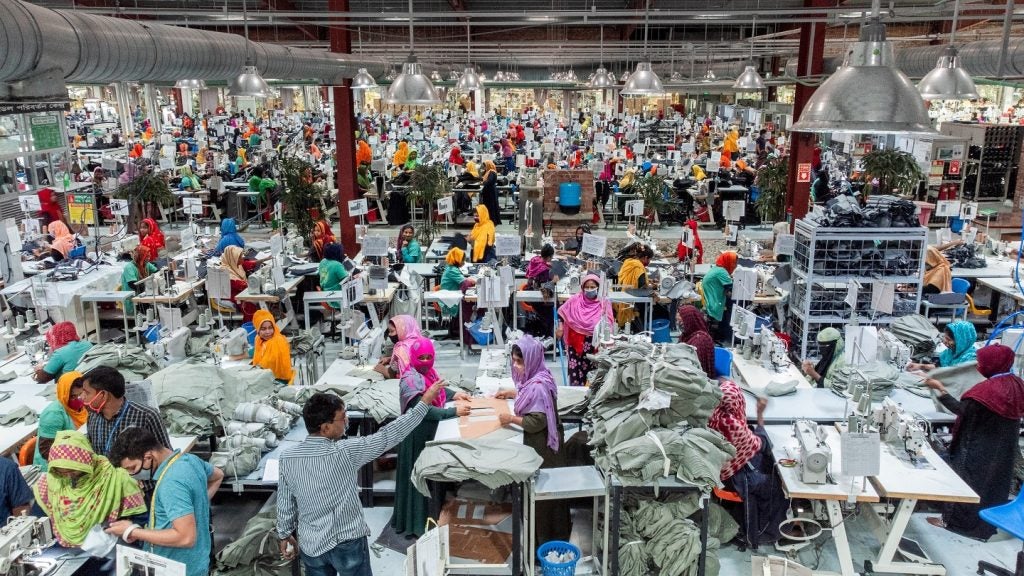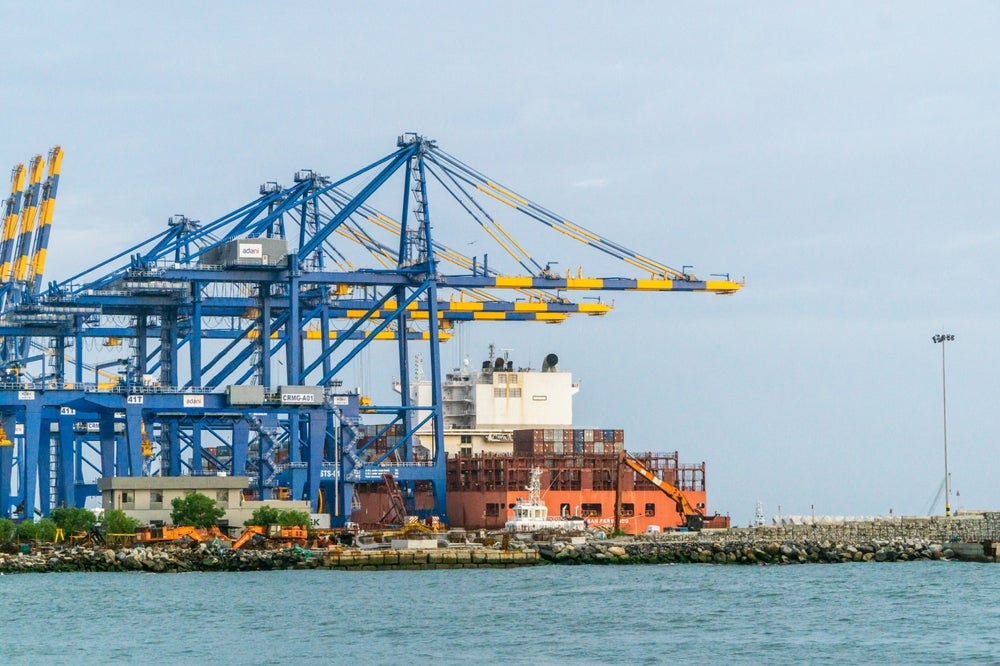The report titled 'Paying the Price for Fashion: Securing a Living Wage for Bangladesh’s Garment Workers,' offers recommendations for global fashion brands and policymakers and suggests a timely framework for actionable change. It comes as the EU adopts its Corporate Sustainability Due Diligence Directive (CSDDD).
The national minimum wage in Bangladesh was recently raised from 8,000 taka to 12,500 taka (approximately $66.95) per month, yet the report says this amount represents only 38% of what is deemed necessary for a living wage.
Consequently, it notes that many workers struggle to afford the essentials such as food, housing, healthcare, and education for children, perpetuating cycles of debt and exploitation.
Bangladesh plays a central role in global garment production, particularly for fast fashion and mass-market apparel. The garment and textile sector accounts for more than 10% of the country's GDP, nearly 85% of its export earnings, and provides jobs for approximately 4.3m people.
The report suggests the nation's low labour costs, expertise in textiles, and large-scale manufacturing capabilities make it a key supplier for numerous European brands.
Despite public commitments by many global brands to ensure living wages for workers, it states progress has been limited. Research referenced in the briefing reveals that, although nearly all brands have pledged to adjust wages in line with the increased minimum wage, 79% have not fulfilled these promises.
Identifying root causes
The Swedwatch report identifies two primary systemic issues that contribute to low wages in this sector.
First, the report highlights that workers lack sufficient bargaining power to negotiate better pay. This stems from weak labour laws enforcement and obstacles to unionisation.
Second, it points out that unsustainable purchasing practices by international buyers can mean brands put pressure on suppliers to reduce prices and expedite production timelines — a practice referred to as "price squeezing." These pressures compel suppliers to lower costs at the expense of workers' wages and overall welfare.
Actional steps for buyers and policymakers
The report underscores the necessity for global brands and EU policymakers to collaborate on initiatives aimed at enhancing wages and working conditions for garment workers.
For global brands, aligning due diligence processes with international standards such as the UN Guiding Principles on Business and Human Rights (UNGPs) and the OECD Guidelines for Multinational Enterprises is essential.
On the policy front it believes EU member states can address gaps in the recently introduced CSDDD by providing clear expectations for fair purchasing practices. Expanding the directive's scope, policymakers should also ensure that these regulations require brands to create ethical purchasing policies that prioritise fair compensation within their supply chains.
The report builds upon research conducted by Swedwatch in Bangladesh with support from Awaj Foundation, an organisation focused on garment-sector workers' rights. The research included focus group discussions and interviews with both workers and managers in garment production areas such as Dhaka, Ashulia, and Tongi — specifically in factories supplying the EU market.
The Bangladesh Garment Manufacturers and Exporters Association (BGMEA) had not responded to Just Style's request for comment at the time of going to press.
Recently, worker rights campaigners disrupted Inditex’s Lelystad distribution centre, protesting the company’s alleged “failure” to protect the rights of garment workers in Bangladesh.
















